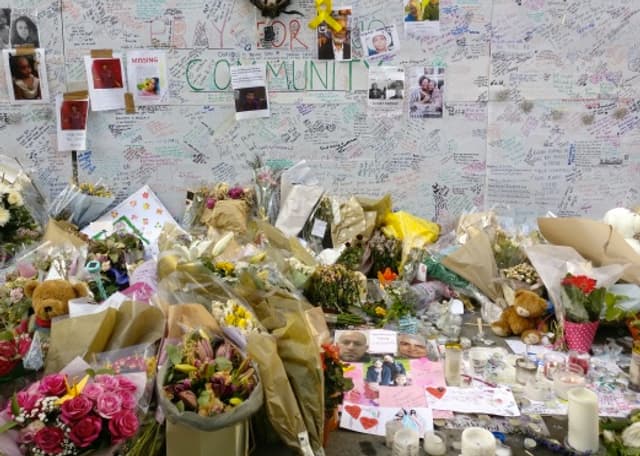There must surely be a better way to make the most of people’s generosity during tragic times?
- Written by
- Andrew Papworth
- Added
- September 28, 2017
 View original image
View original image
It is perfectly understandable that people should want to show their sympathy when there is a major national disaster. Some will want to scrawl notes or graffiti near the site; others will choose to add bunches of flowers to a growing mountain of floral tributes that will be left to wither and die rather pointlessly.
I have always tended to blame the death of Princess Diana two decades ago for the growing habit of piling up floral tributes and graffiti at the sites of fatal accidents or other tragedies. Presumably, at least florists are happy about the trend but it does seem a sheer waste.
 View original image
View original image
After the recent horrors in UK at the Manchester Arena and Grenfell Tower in London there were several charitable appeals set up to help the victims. On the face of it, it seems preferable that people should be able to show their solidarity by donating cash that might, at least, help the victims materially rather than with pointless symbols like flowers, teddy bears, or guttering candles.
But that very much depends on the ability of those running the funds to allocate any cash raised effectively. In truth, they have an impossible task. At the time of writing it had just been announced that the families of the victims of the Manchester Arena bombing are each to receive £250,000. But a blanket distribution like that just can’t make sense. No amount of money can compensate a family for a child lost in the bombing and a £¼ million handout to them could be seen as a kind of distasteful lottery win. On the other hand two children were left without parents on that day and it’s arguable that £¼ million is a mere drop in the ocean in terms of reducing the damage to the rest of their lives to a minimum.
Again, at the time of writing only about £6 million out of the £19 million raised for victims of the Grenfell Tower fire had been distributed; the next of kin of those dying in the fire were awarded £40,000 and those ‘seriously injured’ got £20,000 each. Yet, the cases of those suffering in the Grenfell Tower fire are even more varied than those affected by the Manchester bombing. Some lost children, others lost primary earners, some have had their earning power affected by physical injuries of varying degrees, many will already have suffered mental illnesses as a result of the tragedy and others will do so in the months and years to come. Many lost furniture, furnishings and equipment of varying values. Some will have had insurance pay-outs and others won’t. Some owned their flats and others rented them. Some may have been sub-letting illegally.
Any attempt to dish out fixed amounts from the vast charitable funds that have been accumulated is clearly likely to lead to gross injustices – over-compensating some and under–compensating others. But what is the alternative? Do you get people to apply to the funds and to make their cases for certain amounts and then have panels of ‘experts’ sit in judgement? The Daily Mail and the Sun would have a field day!
Perhaps the answer for the future – without waiting for the next tragedy – should be for a number of charities to set up a national equivalent of the UK‘s Disasters Emergency Committee which can spring into action whenever there is a tragedy in overseas.
I have often commented on the way lots of charities react to international disasters like floods, earthquakes, warfare, famines, epidemics, etc, with their competing identikit ads. But quite often they say in the small print words to the effect that if more money is collected than is needed for the particular featured disaster it will be used wherever needed around the world. The trouble with the funds raised in the wake of the Manchester and Kensington tragedies is that they are far too specific and hypothecated; not to spend the money on the victims of Grenfell Tower or Manchester Arena would be seen as an utter breach of trust. A national disasters committee could allow the public to show their support but the funds raised could be treated with far greater flexibility – some going into reserves ready for a prompt response to the next big tragedy. It wouldn’t solve the problem of fair distribution – it would take the judgement of Solomon to untangle that – but it would mean that not every penny would have to be spent on a particular cause regardless of need.
There is no simple or perfect answer to this problem but one thing is certain, the present system is fatally flawed and needs replacing. The media have already made hay with the fact that huge amounts of the donated funds are yet to be distributed.
You can bet money on the fact that somebody from the press is already scratching around to find that somebody ‘undeserving’ is benefiting from the Grenfell Tower or Manchester Arena.


















